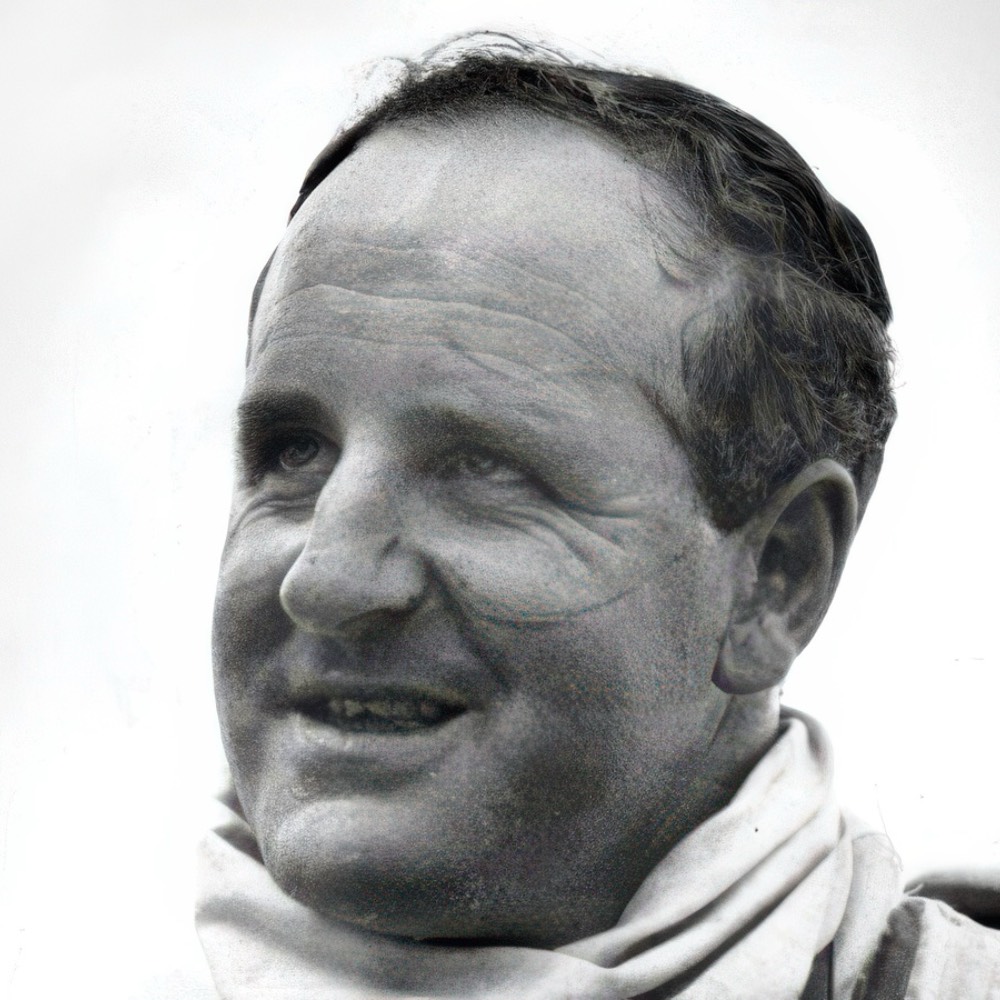
Denny Hulme
World Championships
1967
Career Statistics
Biography
Denis Clive "Denny" Hulme (18 June 1936 - 4 October 1992), nicknamed "The Bear" for his gruff demeanor and straightforward approach, was a New Zealand racing driver who competed in Formula One from 1965 to 1974 and became his country's first and only Formula One World Champion. Born in Motueka on the South Island of New Zealand, Hulme was raised on a tobacco farm belonging to his parents. He was the son of Clive Hulme, a World War II sniper, and inherited his father's determination and toughness. Hulme left school to work in a garage, beginning his connection to automobiles and motorsport that would define his life.
Unlike typical flashy Formula One drivers, Hulme was known for his quiet, workmanlike approach, exceptional consistency, and ability to extract maximum performance without unnecessary drama. He won the Formula One World Drivers' Championship in 1967 with Brabham, achieving eight Grand Prix victories across ten seasons. His championship season saw him score 51 points, winning by five points from team owner Jack Brabham and a further five from Jim Clark, demonstrating his competitiveness against two of the era's greatest drivers. Hulme achieved eight race wins, one pole position, nine fastest laps, and 33 podiums in Formula One, along with third-place championship finishes in 1968 and 1972, demonstrating remarkable consistency across his career.
His unflashy style and reliability made him valuable to teams even if he didn't generate headlines like more flamboyant competitors. In 1968, Hulme moved to McLaren, owned by fellow New Zealander Bruce McLaren, beginning a partnership that became legendary. The duo's success in the Can-Am sports car series was so dominant that Americans called it the "Bruce and Denny Show," a reference to their overwhelming competitiveness. Hulme won the Can-Am Championship in 1968 and 1970, securing the title with crushing superiority while also competing in Formula One for McLaren.
The death of Bruce McLaren in a testing accident in 1970 was devastating for Hulme, who lost not only a teammate and employer but a close friend and compatriot. Hulme continued with McLaren through 1974, helping stabilize the team through difficult years and providing experienced leadership alongside newer drivers. His loyalty and consistency were crucial in maintaining McLaren's competitiveness during the transition period following Bruce McLaren's death. Following his Formula One retirement in 1974, Hulme continued racing in various categories, competing in touring car races and maintaining his connection to motorsport.
On 4 October 1992, while competing in the Bathurst 1000, Australia's premier touring car race, Hulme suffered a massive heart attack at the wheel of a BMW M3 while traveling at over 300 km/h. Despite the medical emergency, he managed to bring the car to a relatively controlled stop before hitting a wall. He was pronounced dead on arrival at Bathurst Hospital at age 56. Hulme became the first former Formula One World Champion to die of natural causes, a distinction that speaks to the dangerous era in which most champions competed—most of his contemporaries who had died before him perished in racing accidents.
Following his death, Hulme was inducted into the New Zealand Sports Hall of Fame, and in 2002 received worldwide recognition with induction into the International Motorsports Hall of Fame. Denny Hulme remains New Zealand's only Formula One World Champion, a source of national pride and a reminder of the small nation's outsized contribution to motorsport through drivers like Hulme, Bruce McLaren, and Chris Amon. His championship, achieved through consistency, intelligence, and unwavering determination rather than flashy speed, exemplifies a distinctly workmanlike approach to racing excellence.